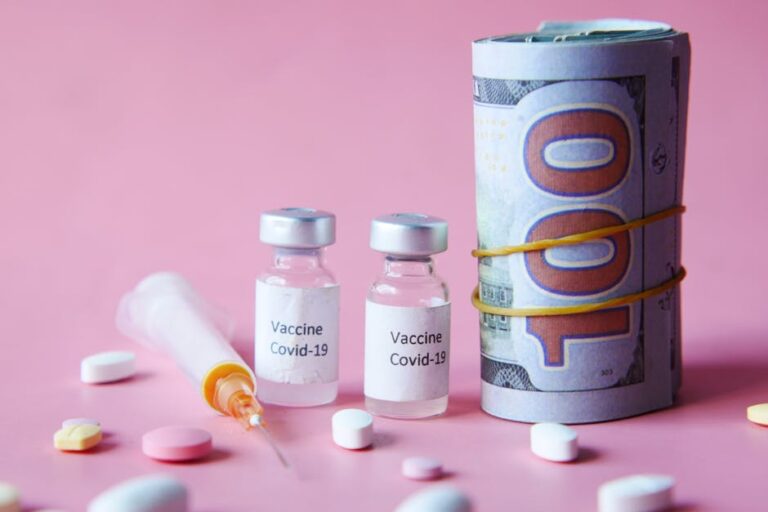Table of Contents
Life in 2025 moves fast, doesn’t it? Things change, for sure, but some basic stuff, like keeping ourselves clean, well, that stays important. It’s not just about looking good; it’s about feeling right and staying healthy. People often miss how much a little daily care really helps, stopping problems before they even start. I’ve seen this play out over many years, how the small details make big differences.
Think about it: our bodies are pretty amazing, but they also pick up all sorts of things from the world. Dust; germs; just general grime. We’re out there living, touching, moving around. Without regular cleaning, these things build up. What happens next? Skin issues; smells; sometimes, you get sick. It just feels better to be clean, honestly.
Simple Daily Habits for a Better You
Getting clean isn’t some big, complicated puzzle. It’s mostly about a few simple things you do every day, without much fuss. Showering, washing your hands, taking care of your teeth – these are the main players. And doing them right, consistently, is what really counts. Some folks think they are clean enough; often, they are wrong.
In my experience, consistency is the true winner. A quick shower every day, not just once in a while, does wonders. Use proper soap and water, get everywhere. It washes away dead skin, sweat, and all that invisible stuff you collect throughout the day. It’s not just for freshness; it’s for skin health too, keeping pores clear.
Washing Your Hands: More Than Just a Rinse
You touch things all day, right? Door handles; phone screens; money. Your hands pick up a lot of tiny critters, some good, some not so good. Hand washing, really washing them, with soap and water, for at least twenty seconds, cuts down on so many sicknesses. It’s a basic step, yet so many skip it or do it too fast.
Think of how many times you touch your face without thinking. Your eyes; nose; mouth. Each time, you might be transferring germs from your hands directly inside your body. That’s a quick way to catch a cold, or worse. So, good hand washing isn’t just polite; it’s a real health safeguard. It stops a lot of common bugs.
Getting the technique right matters. Wet your hands; apply soap; rub palms together; back of hands; between fingers; under nails. Then rinse well and dry with a clean towel. This whole process takes less than a minute. It is not difficult; it just takes a bit of thought. This small act carries a lot of weight.
Oral Care: More Than a Pretty Smile
Your mouth is a gateway. What goes in; what comes out. Keeping it clean is not only about fresh breath or white teeth. It directly impacts your overall health. Neglecting your mouth can lead to gum disease, cavities, and even more serious body-wide issues. This part of hygiene really often gets ignored or done poorly.
Brushing twice a day, every day, for two minutes each time, is the rule. Use fluoride toothpaste. Don’t scrub hard; gentle circles work best. And flossing? That’s just as big. It reaches places your brush can’t, pulling out trapped food and plaque. This keeps your gums healthy and stops bad breath.
What’s interesting is how many people brush but never floss. They think the brush does everything. But plaque hides between teeth, right at the gum line. Flossing breaks it up. Without it, you’re just doing half the job. It’s a bit messy sometimes, but the payoff is huge for your future self.
Shower Time: Not Just a Habit
Taking a shower or bath isn’t just about waking up or unwinding. It’s crucial for skin health and body odor control. Sweat mixes with bacteria on your skin, creating smells. Regular washing removes these bacteria and keeps your skin clean. This helps prevent skin problems like acne or rashes.
Use a mild soap and pay attention to areas that get sweaty: armpits; groin; feet. Don’t forget behind your ears and your neck. Rinse all the soap off thoroughly. Leaving soap residue can cause irritation. After showering, dry yourself completely to stop fungus from growing, especially between toes.
And the water temperature? Lukewarm is often best. Very hot water can strip your skin of its natural oils, leaving it dry and itchy. Cold showers have their fans, but for general daily cleaning, warm water does the trick without harming your skin. It is a simple adjustment to make.
Foot Care: Often Overlooked but Critical
Our feet carry us everywhere, taking a beating every single day. Yet, they’re often the most neglected part of our body when it comes to hygiene. Sweaty socks; tight shoes; walking on various surfaces. All these create an environment where issues can easily begin. Think about athletes’ foot; it’s common.
Wash your feet daily with soap and water, just like the rest of your body. Dry them very carefully, especially between your toes, as this area is a prime spot for fungal infections. Trim your toenails straight across to avoid ingrown nails. Change socks daily, choosing breathable materials like cotton.
If you have specific foot conditions, like athlete’s foot or cracked heels, address them right away. Don’t just ignore them; they usually don’t go away on their own. Comfortable, well-fitting shoes also make a huge difference in keeping your feet healthy and happy. It’s a fundamental part of daily living.
Clothing and Linens: A Clean Foundation
What we wear and sleep on directly impacts our personal cleanliness. Clothes soak up sweat, dead skin cells, and external dirt. Re-wearing dirty clothes traps all that against your body, leading to smells and skin irritation. Fresh clothes feel better; they also keep you cleaner.
Change underwear and socks every day, without fail. Outer clothes, like shirts and trousers, depend on how much you sweat or if they get dirty. But generally, they need washing after a few wears. Bed linens – sheets, pillowcases – collect a lot of dead skin and dust mites.
Wash your bed linens regularly, at least once a week. This significantly improves your skin health and sleep quality. Dirty pillows can contribute to acne or allergies. It’s a simple change that makes a noticeable impact on your daily freshness and overall sense of well-being.
Nail Care: Small Details, Big Impact
Your fingernails and toenails might seem small, but they can harbor a surprising amount of dirt and germs. Think about everything you touch throughout the day. Underneath your nails, tiny particles of food, dirt, and bacteria can hide. This makes nail hygiene a quiet, but vital, part of staying clean.
Keep your nails trimmed and clean underneath. Use a small brush to gently scrub under them when you wash your hands. Avoid biting your nails, as this transfers germs from under your nails directly into your mouth. It’s a common habit; breaking it helps a lot.
For toenails, trimming them regularly prevents them from becoming too long and pressing against shoes, which can cause discomfort or ingrown nails. Always trim straight across. Taking care of your nails is a small effort that helps prevent bigger problems. It’s basic common sense.
Beyond the Basics: Hair and Skin
Hair hygiene is pretty straightforward: wash your hair regularly to remove oil, sweat, and product buildup. How often depends on your hair type and activity level. Some need daily washing; others can go longer. Use a shampoo and conditioner suited for your hair.
Your skin, the body’s largest organ, needs more than just a quick rinse. Moisturizing, especially after showering, keeps skin hydrated and acts as a barrier. Sunscreen is also crucial, protecting your skin from sun damage that can lead to premature aging and more serious issues.
Even simple things like regular exfoliation can help, gently removing dead skin cells to keep your skin fresh. But don’t overdo it. Listen to your body and its needs. Everyone’s skin is different. What works for one person might not work for another. Find your own rhythm.
The Link Between Hygiene and Confidence
It’s not just about stopping illness. Personal hygiene has a huge, often unseen, impact on how you feel about yourself and how others see you. When you’re clean and fresh, you feel more confident. You stand taller. You talk more easily. It makes a real difference socially.
Nobody wants to be around someone who smells bad or looks unkempt. It creates a barrier. Good hygiene, on the other hand, makes you approachable. It says, “I care about myself, and I respect others.” It’s a non-verbal cue that speaks volumes, honestly.
In my experience, feeling good starts from the inside out, but a clean outside helps too. It builds a foundation of self-respect. People notice. Even if they don’t say anything, they do notice. It just feels better to be put together. That’s a simple truth.
Key Takeaways:
Daily washing; hands, body, and mouth, are foundational to good health.
Consistency matters; small, regular habits prevent bigger issues.
Don’t skip the details; feet and nails need specific attention.
Clothing and linens; keep them clean to stay fresh.
Confidence boost; good hygiene improves how you feel and interact.
Frequently Asked Questions
1. How often should I shower or bathe?: Most people benefit from showering daily; however, it can depend on activity levels and skin type.
2. What’s the best way to wash hands?: Use soap and water; rub vigorously for at least 20 seconds, covering all surfaces; rinse well.
3. Is flossing really necessary every day?: Yes, flossing daily removes food and plaque that brushing misses; it is vital for gum health.
4. How often should I change my bed sheets?: Aim to wash your sheets and pillowcases at least once a week; it removes dead skin and dust mites.
5. Can poor hygiene really make me sick?: Absolutely; unwashed hands are a common way germs spread; poor overall hygiene can lead to infections and skin problems.












